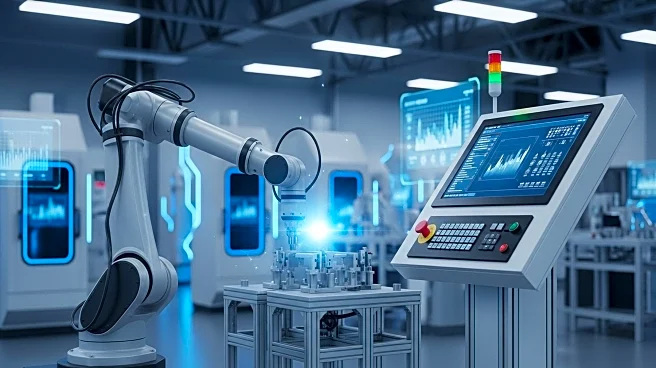What is the story about?
What's Happening?
The integration of analytics into plant automation systems is transforming manufacturing operations by enhancing efficiency, reducing downtime, and improving sustainability. This approach replaces traditional guesswork with data-driven decision-making, providing immediate feedback to plant operators, shift-based insights to supervisors, and strategic visibility to managers. Successful adoption requires cultural transformation, including employee training and collaboration between IT and OT teams. The strategic implementation of analytics follows best practices, such as defining use cases, engaging stakeholders, and prioritizing system integration.
Why It's Important?
Integrating analytics into manufacturing processes is crucial for achieving competitive advantages in operational efficiency, agility, and resilience. By leveraging data-driven insights, manufacturers can optimize equipment use, material flow, and workforce deployment, leading to cost reductions and environmental benefits. This shift from reactive to proactive operations provides a competitive edge in both day-to-day performance and long-term strategy. Additionally, analytics lays the groundwork for adopting advanced technologies like AI and machine learning, which depend on clean and reliable data.
What's Next?
Manufacturers are expected to continue integrating analytics into their operations, focusing on solving challenges such as bottlenecks, unplanned downtime, and inconsistent product quality. Predictive insights will help identify early signs of equipment wear, allowing for scheduled maintenance before failures occur. As companies adopt these technologies, they will likely experience improved decision-making across all roles, from plant operators to managers, aligning resources with broader business objectives.
Beyond the Headlines
The cultural shift towards data-driven decision-making in manufacturing highlights the importance of cross-departmental collaboration and leadership support. As companies embrace analytics, they may face challenges related to employee training and change management. However, the long-term benefits of improved operational efficiency and sustainability are expected to outweigh these initial hurdles.















